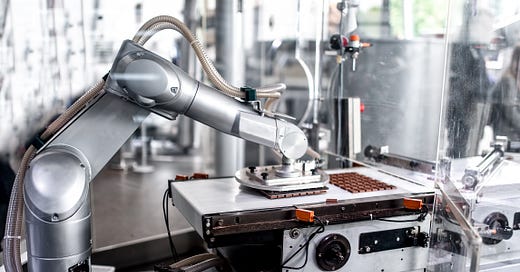Robots are job creators, for better or worse
A comprehensive analysis of a decade's worth of robot investments finds that robots create more jobs than they eliminate — but that may be the bad news
One of the most important and contentious issues facing business and social leaders today is the impact that new technologies will have on labor and employment. As AI and robotics merge in novel ways to take on ever-more complex human tasks, there have been widespread reports of the devastation that these new technologies will have on human labor. For example, a 2017 study predicted that up to 47% of all jobs in the United States could be displaced by robots. OECD researchers went even further in 2016, predicting that up to 70% of tasks performed by labor could be automated. Studies consistently predict that somewhere around 50% of current jobs could be eliminated by the arrival of new robots with higher AI-enabled capabilities.
For the most part, this bleak outlook is accepted in the general business press, where stories of robot-driven unemployment and income inequality are impossible to miss. These reports typically end with a dire warning to policymakers to start thinking about what to do with all those displaced workers. They have even led to efforts such as the Universal Basic Income movement to protect those displaced by these new technologies. On the surface, all of these books and articles make a pretty compelling case, but recent research by Jay Dixon (Statistics Canada), Bryan Hong (NYU), and Lynn Wu (Wharton) provide a somewhat less pessimistic and more nuanced view of this issue.
Their report is based on analysis of over ten years of detailed investment and labor data found in various indices maintained by Statistics Canada. As the authors note, "this study provides the most comprehensive evidence at the level of individual businesses on employment and organizational effects of robot investments." The study is important research not just for its breadth and depth but also for its consideration of a key issue: previous wide-scale general-purpose technology adoptions have tended to increase overall job availability. This was the case with the arrival of computers and the internet, for example. Thus, robots would have to be a different kind of technology, if they negatively affect employment. It's this new and interesting question, typically ignored in discussions about robots, that the researchers wanted to examine.
Keep reading with a 7-day free trial
Subscribe to Thematiks to keep reading this post and get 7 days of free access to the full post archives.





